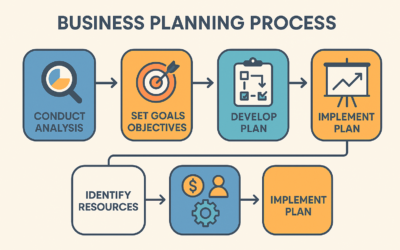Have you heard of search engine optimization (SEO)? If your business has a website, social media accounts, or other forms of an internet presence – which it should – then understanding SEO is crucial.
When it comes to SEO, it’s one thing to know what it is and does. However, it’s something entirely different when you’re learning to understand it and how SEO operates. Because of how important it is for your online presence, reviews for Global Resources have a guide of SEO basics and why you should learn it.
What Is SEO?
As we mentioned at the start, SEO stands for search engine optimization. SEO does exactly what it stands for at its basics – it’s about optimizing a web page for better organic search results.
When you open a search engine, the most popular one being Google, you type in phrases with some keywords for what you’re looking for. Google then takes those keywords and finds you’re a ton of web pages that provide the information you’re looking for.
For example, you’re wanting to learn about training a new puppy. Something you’d likely search on Google would be “new puppy training tips.” Google scatters across all the millions of websites available, looking for that key phrase. The pages that have the best match to what you’re looking for will appear the highest on the results page.
Why Is SEO Important?
Continuing with our example, if you have the keywords on your website that someone is looking for, you have a better chance of appearing on the first page of the search results. That first page is where viewers typically spend the most time, rather than scrolling down the list.
If you can get higher on the results page, it helps drive organic traffic to your website. Organic traffic is when someone comes to your webpage that they found on their own and not through paid advertising. SEO is a free way of reaching your target audience without getting lost in searches that aren’t relevant to you.
How Do You Use SEO?
The first step in using SEO to your advantage is keyword research. You need to determine which keywords relevant to you that your target audience is searching for.
Look at three factors when using a keyword – the search volume (how many people are searching the keyword), the relevance (the keyword should reflect your webpage’s topic), and the competition (your likelihood to rank amongst other websites).
After you have a list of relevant keywords, the next step is to add them to your webpage. However, it’s important to note that you need to add them naturally to make sense. Start with the primary keyword, which would be the main topic of the webpage. Ensure you have that keyword a few times throughout the page, including in the title and description. Then, add a couple of more keywords to your list. Just make sure that you don’t litter your page with every keyword.
There you have it – the absolute basics of understanding and using SEO to your advantage. Now, this is just the start of how SEO works. You could spend hours learning more about it and how it will help organically grow your web presence.

0 Comments